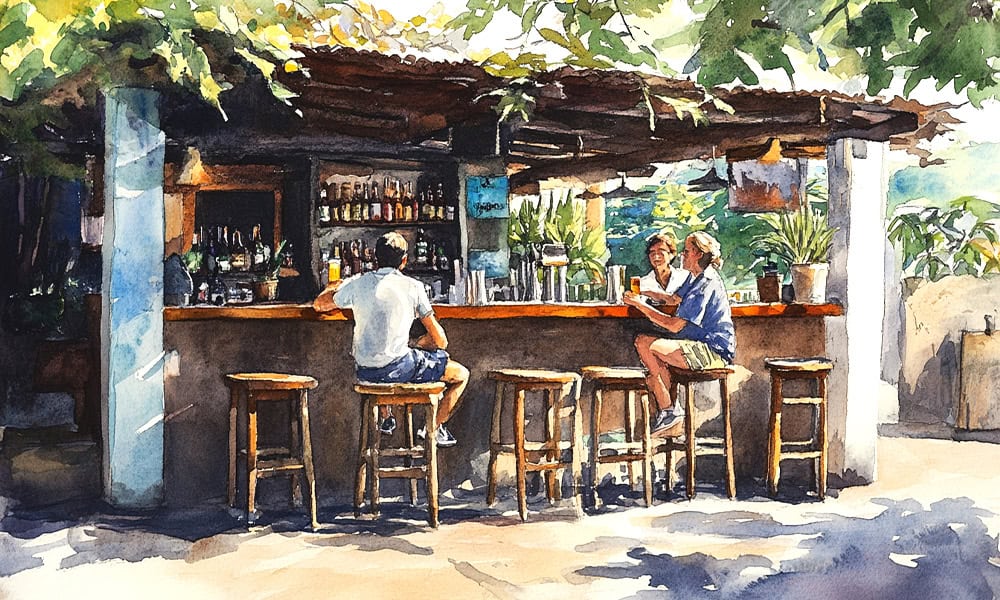I am semi-retired. Actually, I have always defined my status in Costa Rica, going back over 30 years, as semi-retired: alternating between periods of intense work, often holding two jobs or managing businesses that require six or seven day work weeks, with down periods where I give myself the time to enjoy mountain hikes, back trail bike rides, and swims in the ocean. I work hard, and when I am not working, I consider myself retired, at least temporarily.
Right now, I am in a retirement phase. I take everything slower, note details I would not ordinarily see were I in a hurry to get from point A to point B. I walk to town, twenty minutes, mostly downhill. On the main street of the barrio, I pass the soccer pitch and stop to watch a solitary player practicing his footwork while a jogger does laps and a stray dog cuts through toward the wooded area in the back. The Catholic Church next door has the doors open, and a parishioner is sweeping the front stoop. Across the street, the grade school is letting out; young mothers meet their children and walk hand in hand toward home.
On the corner across from the school, two different sodas compete in the same building. There had been only one, but as it was doing good business, someone opened another one right next door. Both are empty as I pass. On down the road, businesses that work from their homes: the guy I buy cheese from, the guy who repaired my hiking boot for 1,000 colones, the upholsterer, the bicycle repairman. All in the first 100 meters of my walk.
In town, I take my time on my errands. Walk down to the hospital to pick up some kind of powder my wife wants that will kill the tiny ants that appear by the thousand with every drop of juice spilled. I pay 1,000 colones for 2 packets and chat with her about the effectiveness of the product.
Then I walk a few blocks to the central bus station, where there is a carniceria that will sell me a kilo of soup bones for my dog for 500 colones. They are quality bones with enough meat on them that my wife occasionally suggests she use them for human meals. The butcher is in no hurry. He is engaged in a conversation with another customer.
They talk about the Costa Rican football league. I hear Saprissa, La Liga, San Carlos, and the local squad, Los Guerreros del Sur all mentioned. I wait patiently until he has weighed out the bones. I put the bag of bones in my backpack along with the packets of ant killer. Walking through the bus station, I pass fruit vendors, lottery salespeople calling out numbers, and the roar of various interurban buses arriving and leaving.
On my uphill walk back home, I reach the barrio cantina and sip a noontime beer and chat with the young couple working the bar. I pay, leave a 500 colon tip (a rarity in Tico bars), and walk home. My dog greets me happily. She likely smells the bones, given that their sense of smell is anywhere from 1,000 to 10,000 times stronger than humans. (I can’t smell the bones).
I kick back, review my financial situation, and realize that as good as life is, my latest retirement phase is temporary. Soon enough, it will be time to get a real job and pile up a few more years of earnings until I can retire for good.






